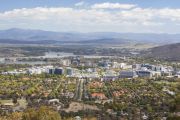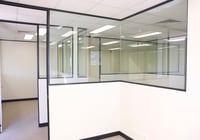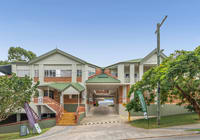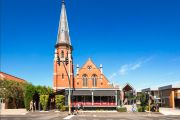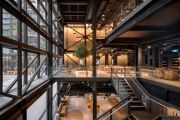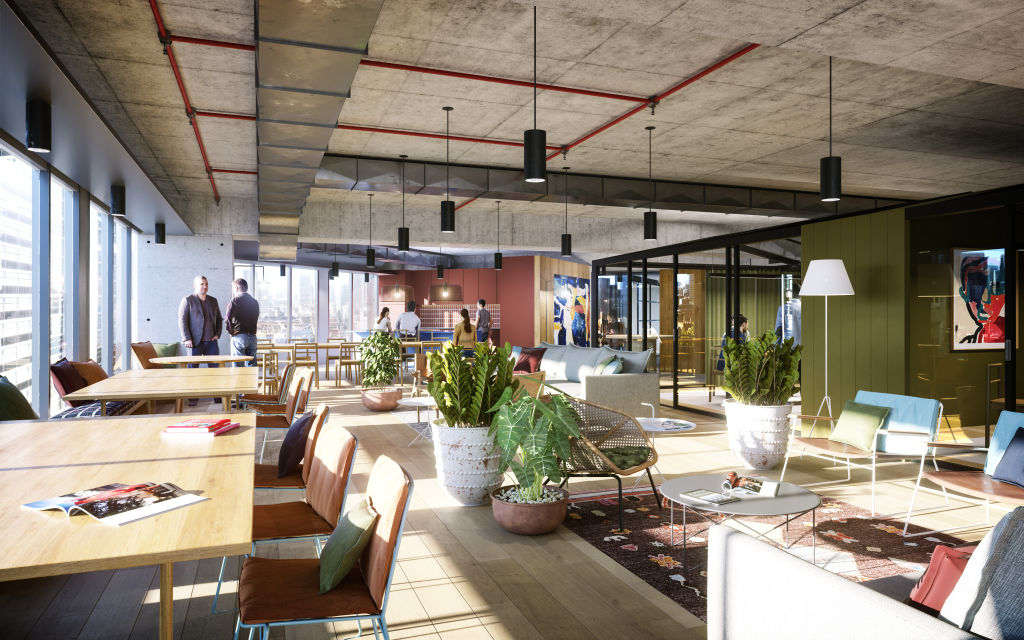
Flex offices are in demand as tenants seek alternatives to traditional offices
The pundits may have been too eager to suggest the demise of co-working or flex spaces after all. With more people working from home and spending their salaries on ergonomic chairs and standing desks, the critics reasoned there would be little need for flexible office space.
But those are the exact reasons that have seen the sector thrive.
The latest reports show Australia’s co-working spaces are in demand as tenants seek alternatives to traditional offices.
The Australian Flexible Office Space Report by Rubberdesk shows six new office and co-working centres opened in the final quarter of 2023 and nine more in the first quarter of this year. The company’s January report found businesses in the professional services and technology industries were leading the charge for flexible office space.
Currently, the national median price for renting a desk is $660 a month. Sydney has the most expensive desk rates at $943, followed by Melbourne ($725) and Perth ($700).
Economic uncertainty puts flex office space at an advantage, according to the report’s authors.
“With the [Reserve Bank of Australia] forecasting below-average growth in the short term and a slower-than-anticipated decline in inflation, the 2024 economic outlook poses challenges and uncertainty for tenants that flex office space is ideally positioned to service,” the report states.
Further data from real estate firm CBRE found Australia’s flexible office market footprint increased by 2.1 per cent in the east coast markets in the 12 months to June 2023.
At that time, flex operators represented 2.7 per cent of office stock in those markets – a 3.1 per cent decrease from early 2020 when the sector was at its peak.
This optimism is reflected globally, with the US co-working market expected to skyrocket from a total market value of $US11 billion in 2023 to $US35 billion in 2027.
The Flex Futures report by Flexible Workspace Australia reveals that the US is the world leader in co-working spaces, followed by India and the UK, while Australia is in seventh spot.
Flexibility may be the number one selling point, but co-working hubs have also found favour among workers who enjoy autonomy and a sense of community.
Experts say the design of co-working hubs gives people control over their workday and puts them in a space where they feel supported and inspired to achieve.
Much of it is thanks to design, says Colliers head of workplace and transformation Karen Primmer. “Co-working environments often lead the way in workplace design,” she says. “They are designed considering the impact that items such as biophilia, colour, texture, lighting and acoustics have on individuals and neurodiversity.
“The design, along with the experience the operator overlays, make them welcoming environments and communities that individuals want to be part of and collaborate in.
“Recent studies show that workplace environments designed with an understanding of their impact on individuals and their performance significantly enhance wellbeing and productivity. They allow people to flourish.”
Before the pandemic, co-working spaces were primarily seen as places for entrepreneurs to grow their start-ups. Post-pandemic, they are increasingly being used by workers who want to remain close to home and enjoy some of the same comforts they became accustomed to during lockdown restrictions.
Casual lounges, quiet corners and outdoor gardens are among the appeal.
GPT has eight Space&Co locations across Sydney and Melbourne, with another three venues to open by the end of the year.
The company’s head of office, Martin Ritchie, says this is a sign that the sector is on the up after its post-COVID slump.
“Our venues provide tremendous amenity and flexibility for customers in our office buildings,” he says. “They are a key attractor for corporate customers who have taken large-format space in our buildings, providing a true core and flex solution that enables them to take additional space as and when they need it.
“The flexible membership options also satisfy the needs of small and medium enterprises seeking high-quality space in a central CBD location. There is the flexibility of short lease terms and the opportunity to scale up and down, in line with their business changes.”


